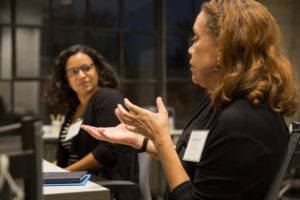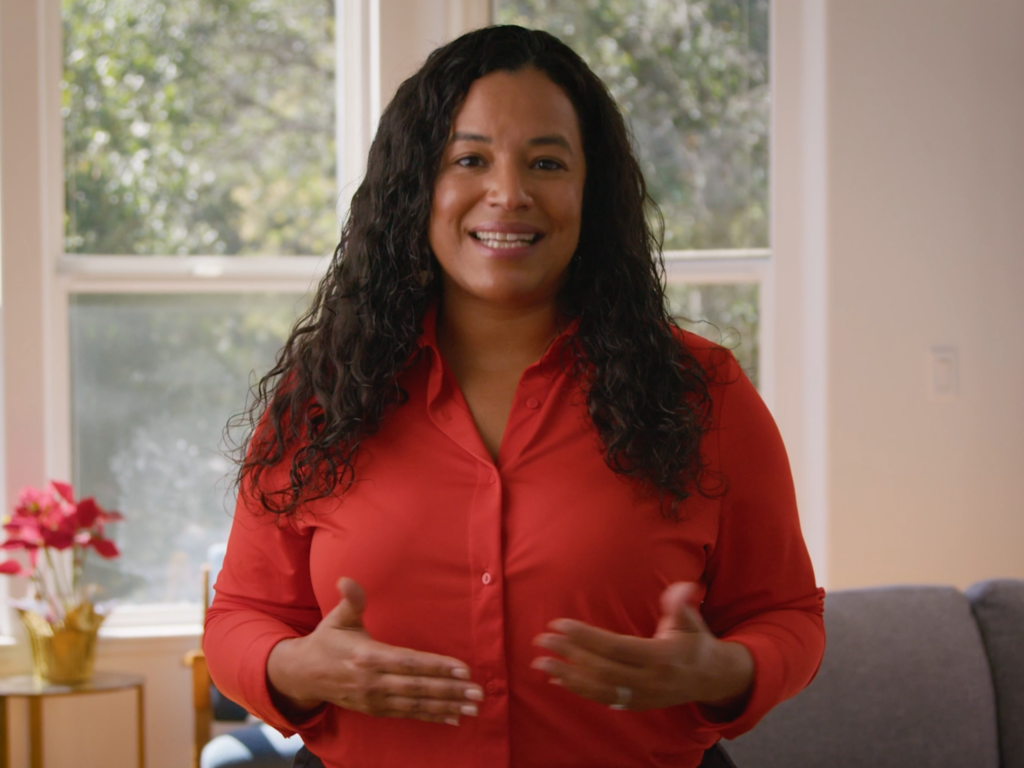This blog is also cross-posted on Medium.
 My team at NewSchools just completed one of our favorite and most impactful activities of the year — we decided upon the next round of investments in our Diverse Leaders portfolio! It’s always exciting to announce our new ventures, and lately I’ve been reflecting on what it means to fund organizations that might change the world. Many of the civil rights organizations that did change the world, and the funders who took a chance on them, were making history in that moment. I wonder if they knew their actions would change the course of our country.
My team at NewSchools just completed one of our favorite and most impactful activities of the year — we decided upon the next round of investments in our Diverse Leaders portfolio! It’s always exciting to announce our new ventures, and lately I’ve been reflecting on what it means to fund organizations that might change the world. Many of the civil rights organizations that did change the world, and the funders who took a chance on them, were making history in that moment. I wonder if they knew their actions would change the course of our country.
I think about organizations like the United Negro College Fund, founded by Frederick D. Patterson and Mary McLeod Bethune in 1944, or the Children’s Defense Fund, founded by Marian Wright Edelman in 1973, which were created by Black women and men who believed in the power of education to increase opportunity for children in low-income communities. These groups have been integral to protecting civil rights and promoting educational equity, but when they were fledgling organizations, they needed funding to make their vision a reality.
Those organizations were young and right for their time, and today there is a whole new wave of leaders striving to make their mark. In our work to fund early-stage entrepreneurs advancing Black and Latino leadership in education, I’ve been struck by the barriers that still exist for entrepreneurs today. I hear repeatedly from leaders of color that the biggest hurdle to realizing their vision is access to funding. Many Black and Latino entrepreneurs lack connections or access to funders. Even if they do have relationships with funders, they may face conscious or unconscious bias in the fundraising process, which may result in having to meet more stringent requirements to receive funding.
In fact, Bridgespan found that in the nonprofit sector, Black and Latino leaders receive 33 to 50 percent of the philanthropic funding that white leaders receive. And yet, among NewSchools’ Diverse Leaders ventures who were able to leverage our investments for new funding, the multiples were significant — collectively our entrepreneurs have leveraged our funding approximately seven times, raising more than $13 million in addition to our investments.
This is encouraging because we must invest in the next wave of brilliant Black and Latino education entrepreneurs. We can’t afford the opportunity cost of not supporting the next Mary McLeod Bethune, Frederick D. Patterson or Marian Wright Edelman. And, we don’t even know what we may be missing because the lack of capital is stopping leaders before they can bring their ideas to fruition.
NewSchools believes the cost is too high, and our Diverse Leaders investment area is focused on addressing these issues. In addition, NewSchools prioritizes diversity across all three of our investment areas — Innovative Schools, Ed Tech and Diverse Leaders — because we want to harness the richness of diverse leaders’ ideas and perspectives for the benefit of all students. In 2017, 38 percent of the entrepreneurs we funded across all of our investment areas were Black or Latino, including 92 percent of the entrepreneurs in our new Diverse Leaders cohort.
When I look at the organizations we’re funding this year, I see the start of history being made. I see a group of strong entrepreneurs with inspiring visions for how diversity can bring much needed innovation to the field. Here’s a look at the leaders in our new Diverse Leaders cohort who are taking up that mantle today and pushing excellence and equity in education forward.
- Roblin Webb, Founder, Barefoot Schoolhouse Consulting
- Renata Soto, Co-Founder and Executive Director, and Gini Pupo-Walker, Senior Director of Education Policy and Programs — Conexión Américas: Mosaic Fellowship
- Vincent Cobb III, CEO and Co-Founder, and Sharif El-Mekki, Co-Chair and Founder, The Fellowship — Black Male Educators for Social Justice
- Martrice Gandy, Founder and Executive Director, MindWorks Collaborative
- Christopher Chatmon, Deputy Chief of Equity, and Raquel Jimenez, Director, Oakland Unified School District, Office of Equity: Latino/a Educator Recruitment & Retention
- Kimberly Diaz, Co-Founder and CEO, and Andrew Daub, Co-Founder and COO, oneTILT: Fellowships
- Jason Terrell, Co-Founder and Executive Director, and Mario Jovan Shaw, Co-Founder and Chief Impact Officer, Profound Gentlemen
- Dr. Makeba Jones, Assistant Teaching Professor, UC San Diego, and Dr. Zachary Green, Associate Professor of Practice, University of San Diego, and Program Manager, RISE San Diego — The Institute for Entrepreneurship in Education & RISE San Diego: RISE Urban Principal Preparation Program
These eight organizations represent a small slice of the 140 applications we received from inspiring leaders across the nation. Sadly, there are many impactful organizations that we could not fund this year. My hope is that more funders will join us in supporting entrepreneurs of color and organizations focused on advancing diverse leadership in education, not just because they are diverse, but because of the strength of their ideas to improve education. We don’t want to live in a future without them.


